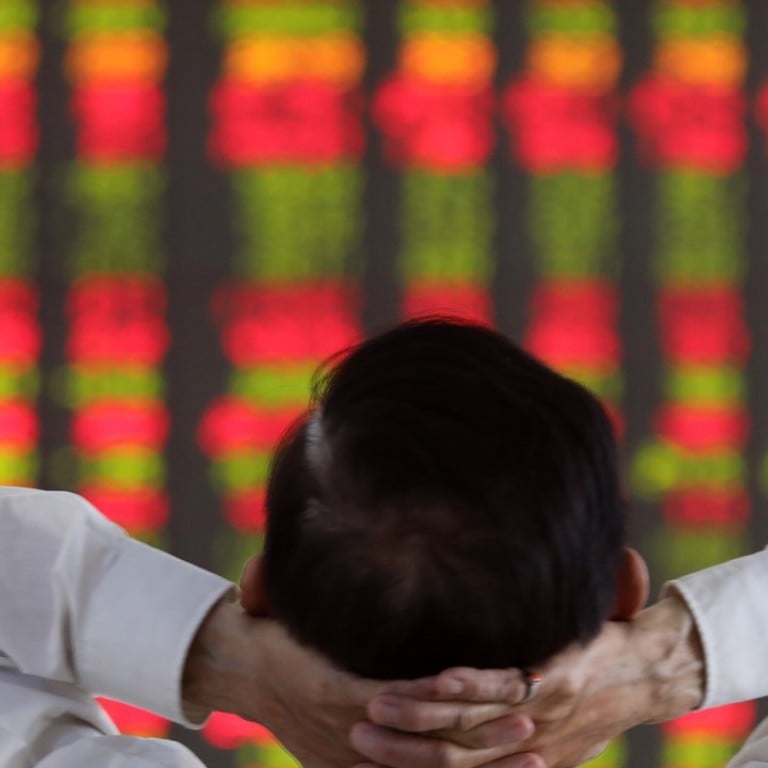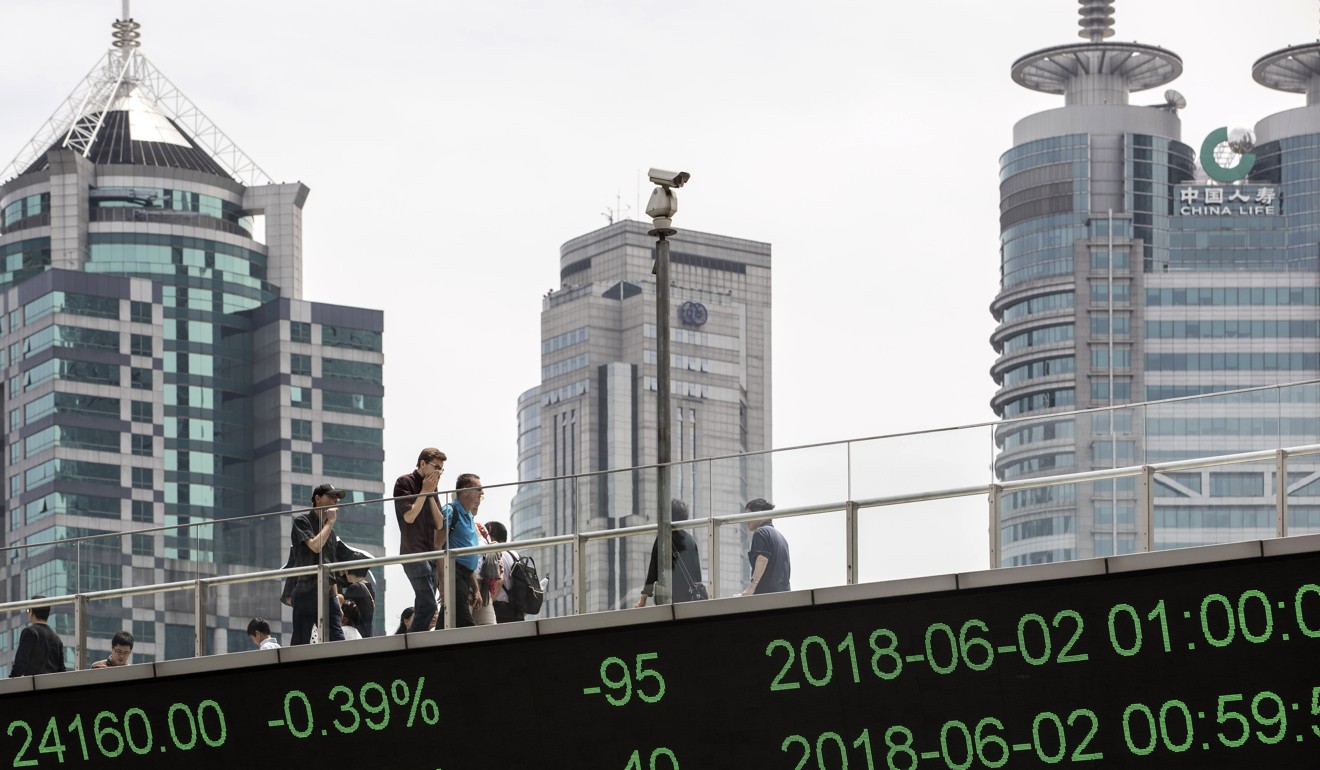
China stocks on verge of bear market after week that saw US$514 billion drop in market cap, equivalent to Sweden’s GDP
China’s intensified trade spat with the US is now about to send its US$6.7 trillion equity market into bear territory.
The benchmark Shanghai Composite Index is now down 19 per cent from its January high, on the cusp of a 20 per cent decline generally seen by technical analysts as the threshold where stocks enter a bear market. The gauge rebounded 0.5 per cent to 2,889.76 at the close on Friday.
If the decline resumes, sending stocks below the bear market threshold, it will be the first time since a major rout in 2015. China’s stocks have erased about US$514 billion in market value this week, or the equivalent of Sweden’s economy, after the Trump administration threatened additional tariffs worth US$200 billion following Beijing’s retaliatory duties.
The Shanghai Composite had rebounded as much as 34 per cent over the past two years, amid accelerating earnings growth from the biggest listed companies and as state-linked funds intervened from to prop up equities and suppress volatility to record-low levels.
Jefferies Group lowered its rating on Chinese stocks, saying the market is now suffering from a double whammy of the trade war and monetary tightening. China’s aggregate financing fell to the lowest level in two years last month amid an increased crackdown on shadow banking, forcing listed companies to cut capital expenses and debt, the US investment Bank in a research note.

“The bottom line is that while Chinese A share free cash flow has improved and earnings are growing, Chinese monetary conditions are tightening, threatening a credit crunch,” analysts led by Sean Darby at Jefferies said in the note.
The large-cap CSI 300 Index tracking companies including Kweichow Moutai and Gree Electric Appliances also remains down 18 per cent from a high in January.
Faithful foreign investors have also turned into net sellers this week. They sold a net of 1.99 billion yuan (US$306.2 million) mainland stocks through the exchange link with Hong Kong on Tuesday, and 834.2 million yuan on Thursday. That followed net buying every day for the previous one and a half months.

With the Shanghai Composite down 13 per cent this year as the worst performer among the world’s major stock markets, investors including JPMorgan Asset Management said the reaction to the trade friction may be overdone as the sell-off was way too broad.
“The sell-off in China onshore equities may be more of a sentiment blip” said Zhu Chaoping, a Shanghai-based strategist at JPMorgan Asset. “A number of companies unrelated to exporting suffered meaningful stock price drops. Upcoming economic data for the third and fourth quarters should be critical for market sentiment. If the economic fundamentals remain resilient, as we expect, the market should recover.”

